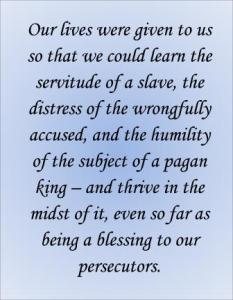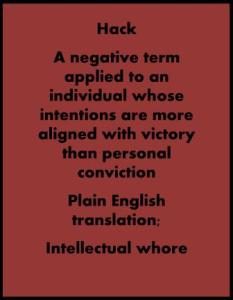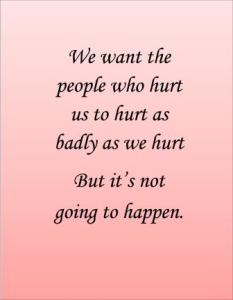I have learned so many different things from people in the scriptures and how they lived their lives, but this morning I want to talk about Joseph.
Everyone agrees that Joseph was extraordinary. But what about his mother, Rachel? A barren woman, the beloved and favorite wife who strove against her sister because of the cruel circumstances inflicted by their own father, someone who strove against her own husband, and the daughter who stole what she felt belonged to her husband by inheritance rights. And I am not saying that I am judging Rachel. I don’t know what it is like to have a sister as a rival for my husband’s heart, but I do know the frustrations of being barren and the cry of “Give me children, or I’ll die!” (Gen 30:1). I also cannot relate to the frustration she experienced as her husband was constantly being cheated out of the inheritance owed to him by Laban. I understand, when they left with with the livestock but without the land, why she must have felt entitled to take the household gods too. In the ancient Near East, those were an important part of what was passed down from father to son. But, as it was her character to strive against circumstances, she ended up dead when her own husband unknowingly pronounced a curse against her even as he was answering the charges of her father against them. In an attempt to restore honor through answering the charges, Moses credits him as the architect of his beloved wife’s death.
It is interesting then, that Rachel gave birth to a son who went through far worse and yet never strove against it. Joseph took everything life handed to him and prospered in the midst of it. This morning, as I was meditating upon the Word in my bed, I realized that the story of Rachel and Joseph teaches us that a life of striving against circumstance is deadly, but embracing what has been given to us and striving against ourselves is life.
Joseph lost his mother when he was very young.
Joseph was rejected by his brothers, because of the favor showed him by their father and because of his dreams–and because he was a bratty little tattletale who preferentially ratted out the sons of his father’s concubines.
Joseph was sold into slavery by his brothers.
Joseph ended up a slave in the house of Potiphar of Egypt.
Joseph had to endure repeated seduction attempts by Potiphar’s wife, who was married to a eunuch and perhaps desperately desired children (definitely striving against her circumstances).
Joseph was wrongfully accused of rape and thrown into jail for years and as far as we know, he was never cleared of that crime.
Joseph successfully interpreted the dreams of the baker and cup bearer but went forgotten.
Joseph interpreted Pharaoh’s dream and became viceroy of Egypt.
Joseph is given a pagan wife and for all intents and purposes, is made to live as an Egyptian, so in many ways he is still nothing but a slave even though he has great power as he the freedom to leave Egypt.
And what do we see at each turn of events? Joseph never strives against his circumstances. He accepts them and serves, and keeps on going. He serves his father, he serves Potiphar, he serves the jailer, he serves Pharaoh and the nation of Egypt. We see no accounts of rebellion. We never see him striving against his cruel circumstances. Joseph never fights against his life, only against temptation. Rachel, who strove with Leah, and her husband, and her father – gave birth to someone who didn’t strive against anyone. Joseph cooperated. Joseph lived and saved innumerable lives.
So many of us do not like the hand we have been dealt. Our lives, or our spouses or children are not what we thought they should be. But we have to realize that our lives are a gift – they were given to us not so that we could conquer evil, but so that we could learn to conquer ourselves in the midst of evil. For the most part, Rachel wasn’t dealing with the consequences of her own sin, but the consequences of her father’s sin. Likewise, Joseph usually wasn’t dealing with the consequences of his own sins either. And there is a difference in how we treat those two situations. When I have made a misstep, or have sinned and find myself in an evil predicament, I must repent and fight my way out of it for the sake of my family and others. For instance, if I have married an abuser, I have to get my kids and myself out of there. If I have gotten myself addicted to drugs or pornography (which I did as a child), I need to repent and fight my way out of it. But if the circumstances are beyond my control–like Joseph’s and Rachel’s, I have to conduct myself like Joseph and not like Rachel. I have to serve faithfully in this life I have been given until the time comes when God’s plans are revealed and He gives me the authority to act. But this constant striving is deadly. We cannot strive against everything and hope to have a victory in anything. We cannot run from the lives we have been given any more than Joseph could have gotten out of that pit, or away from Potiphar, or escaped from jail, or abandoned Pharaoh. Our lives were given to us so that we could learn the servitude of the slave, the distress of the wrongfully condemned, or the humility of the subject of a pagan King – and thrive in the midst of it, even so far as blessing our persecutors.

Very few of us are meant to ever conquer anything except ourselves. And yet conquering ourselves is a greater thing than conquering the world. It is when we have conquered ourselves that we can fight the good fight with honor and integrity–like the Civil Rights protesters last century in my own country who fought not only for themselves but for the voiceless and the powerless and sometimes paid the price of their lives. But they had to learn not to fight as the world fights, serving the world according to the upside down ways of the Kingdom. Just as the people of India did against the mighty British Empire, and won.
Yeshua (Jesus) came first as the suffering servant. He saw the evil Roman Empire all around him every single day. He saw crucifixions, and paganism. His earthly king wasn’t even of the line of David but from the seed of Edom. He had to pay taxes to Caesar in order to be excluded from the Imperial order to sacrifice to Caesar once a year. And yet, we never see Him fighting “everything.” We see him preaching truth and serving and when he was tested verbally, then we see him striving with those who were questioning Him in the normal ancient Near Eastern fashion. He isn’t recorded as spending time fighting against His circumstances. He didn’t have a roof over His head, we don’t see complaining about not having enough money for His ministry, or fighting against his family or hometown. He even went to His death without a fight. He didn’t focus on the negatives, but on the Kingdom of Heaven, and only really fought when He saw people being barred from it or when He saw His Father’s character being misrepresented. Yeshua had a lot to complain about but He didn’t spend much time doing it.
Like Yeshua, it is our lot to sometimes suffer in the lives that were chosen for us. Like Joseph, we are in exile here, captives, and it is not going to be easy. But we have been ordained to thrive in the midst of those circumstances, to show what His character looks like in the midst of troubles. And in order to accurately reflect His character within the trial, we have to stop striving against the trial and instead use the trial to strive against ourselves. And like Joseph, to strive on behalf of the salvation of others–saving people who were foreign to himself and perhaps even hateful. What would the world be like if those in positions of privilege strove on behalf of others instead of themselves?
Rachel could have refused to strive against her sister, who was every bit as much a victim as she was. She could have appreciated that she had the love her sister was denied, and pitied her sister. She could have cried out to God for children, instead of to her husband. She could have left well enough alone and left the foreign gods behind. After all, if her husband wanted them he could have taken them himself. And additionally, she had the opportunity to speak up when her father made the accusation, before her husband pronounced the curse. Repentance could have saved her life. She also could have told Jacob what she had done, before her father ever arrived. Rachel suffered, but her response to suffering was fruitless. Joseph suffered, and his response was life to many.
So we need to stop resenting and striving as the world strives against every personal circumstance we don’t like–and instead learn to be as Yeshua in the midst of that circumstance. Learn to be the one in the midst of trouble who is just, righteous, merciful, self-sacrificing, radically loving, and diligent to serve. Not focused on self, nor on the pain nor inconvenience nor how things should have been, but on how to do what must be done with how things are. That is not to say that we don’t speak up, or even act up when we have opportunity to make change in the midst of persecution but as citizens of the Kingdom of Heaven, we have to play by Kingdom of Haven rules. The world will do what the world will do–this has never changed and we cannot control whether they allow us to live or die. But we can represent well when it is our turn to be seen and heard.




